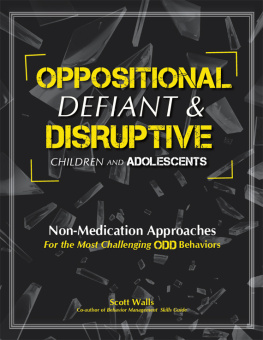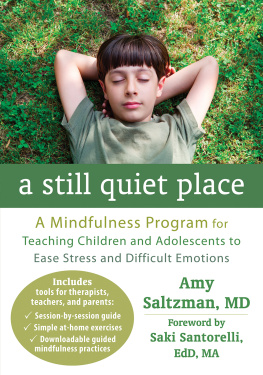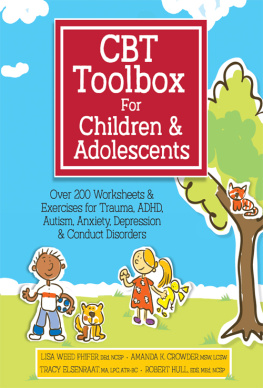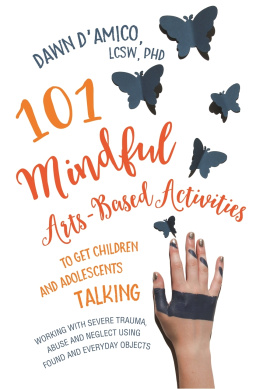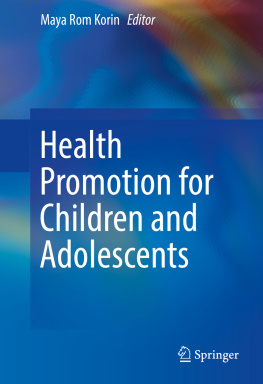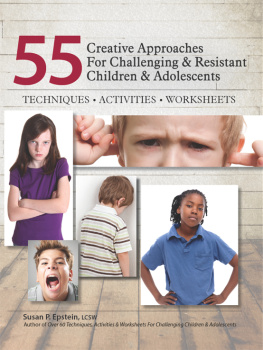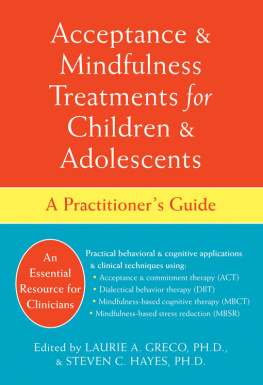Bibliography
Barkley, Russell A. (1997). Defiant children: a clinicians manual for assessment and parent training. New York: The Guilford Press.
Bronson, P., & Merryman, A. (2009). Nurtureshock: new thinking about children. New York: Twelve.
Crawford, C. (2009). The highly intuitive child: a guide to understanding and parenting unusually sensitive and empathic children. Alameda, CA: Hunter House Inc.
Epstein, S. & Rosenkrantz, D. (2010). Your out of control teen: the little book with a lot of attitude: a guide to effective parent-teen communication. Shining Star Publishing.
Epstein, S. (2008). Are you tired of nagging? get your kids to cooperate: how to raise well-behaved children. Shining Star Publishing.
Epstein, S. (2007). Taking back your parenting power system: how to get control of your kids in 30 days or less: the secret formula to powerful parenting. Shining Star Publishing.
Ginsburg, K. R. (2006). A parents guide to building resilience in children and teens: giving your child roots and wings. Elk Grove Village, IL: American Academy of Pediatrics.
Ginsburg, K. R. (2002). But Im almost 13!: an action plan for raising a responsible adolescent. New York: Contemporary Books.
Glasser, W. (1998). Choice Theory: a new psychology of personal freedom. New York: HarperCollins Publishers, Inc.
Greene, R.W. & Ablon, J. S. (2006). Treating explosive kids: the collaborative problem-solving approach. New York: The Guilford Press.
James, B. (1989). Treating traumatized children: new insights and creative interventions. New York: The Free Press.
Kindlon, D., & Thompson, M. (1999). Raising cain: protecting the emotional life of boys. New York: Ballantine Books.
Minuchin, S. (1974). Families and family therapy. Cambridge, MA: Harvard University Press.
Minuchin, S., & Fishman, H.C. (2002). Family therapy techniques. Cambridge, MA: Harvard University Press.
Palmer, S. (2006). Toxic childhood: how the modern world is damaging our children and what we can do about it. Great Britain: Orion.
Pink, D. H. (2009). Drive: the surprising truth about what motivates us. Riverhead Books.
Rappaport, L. (2009). Focusing-oriented art therapy: Accessing the bodys wisdom and creative intelligence. London: Jessica Kingsley Publishers.
Szapocznik, J., Hervis, O. E., & Schwartz, S. J. (2003). Brief Strategic Family Therapy for Adolescent Drug Abuse (NIH Pub. No. 034751). NIDA Therapy Manuals for Drug Addiction, Manual 5. Rockville, MD: National Institute on Drug Abuse.
Taibbi, R. (2007). Doing family therapy: craft and creativity in clinical practice, second edition. New York: The Guilford Press.
Whitworth, L., Kimsey-House, H., & Sandahl, P. (1998). Co-active coaching: new skills for coaching people toward success in work and life. Mountain View, CA: Davies-Black Publishing.
Additional Resources on the Web
www.ParentingPowers.com
Susan P. Epstein, LCSW, free special reports and free weekly tele-classes for parents on a wide variety of parenting topics
www.freebehaviorcharts.com
Mona Grayson
partnersforrecovery.samhsa.gov/rosc.html
Partners for Recovery (PFR) addresses issues of national significance and it is driven by the individual, families and communities it serves. The PFR Initiative supports and provides technical resources to those who deliver services for the prevention and treatment of substance use conditions and co-occurring mental health and seeks to build capacity and improve services and systems of care.
www.nami.org
National Alliance on Mental Illness
www.ffcmh.org
National Federation of Families for Childrens Mental Health
www.spectrummentor.com
Brian King, Beyond social skills...strategies for building meaningful relationships for people on the Autism Spectrum...
www.Effects-of-Marijuana.com
1. Informed, Involved and On Board
Children and adolescents are being diagnosed with mental health labels that may lead to or require psychotropic medications. These include ADD (Attention Deficit Disorder), ADHD (Attention Deficit Disorder Hyperactivity), Bipolar Disorder, ODD (Oppositional Defiant Disorder).
Jenny often interrupts, doesnt listen, doesnt complete tasks, is often obstinate and treats authority figures with little or no respect. At home, parents yell, scream, ground and then do it over again.
It seems like Bobby has come off one grounding only to find himself grounded again. Mom feels like a prison guard and home is hostile and tense. At school, the story repeats.
Johnny is the class clown, constantly talks back to the teacher and serves detention after detention. At the parent/teacher conference the teacher recommends that Johnny get tested for ADHD or other issues. The parent may be relieved; at least his negative behavior has a name! Life is finally going to improve! A psychosocial evaluation is recommended and carried out by the school, now Johnny has a diagnosis. Sometimes, however, this very important step is skipped.
Most state school systems are not permitted to recommend medication. However, they can say, Talk to your pediatrician or Your child needs counseling. Most parents, when given such feedback, will take their child to the pediatrician who will often prescribe or make a referral to a psychiatrist.
His acting out behavior doesnt really change that much with just the medicine, so the psychiatrist refers Billy to a therapist. Once a month his parents or caregiver sit in the waiting room at the psychiatrists office and every week while the child is seen by the therapist. The most common form of therapy is individual therapy (the 90806-45-50 minute hour).
In the beginning, Billys parents will see some positive changes in his attitude and behavior and begin to see some progress at home. Billy may seek his parents out more or even treat them respectfully once in a while. We call this the honeymoon period. Parent is driving child to therapy, child is playing or talking with another adult who cares about them, parent is driving child home from the therapy appointment. By nurturing the child, spending alone time with him/her, he/she will naturally respond to this positive attention and his/her behavior will improve.
Then its over....a phone call to the therapist that Louis was suspended for getting in a fight or Andrew pushed his mother or Melinda hasnt come home for three days.
What went wrong?
When we medicate the kids for ADD, etc. and then put them in individual therapy when there is the option of family therapy, doing the kids and the parents a great disservice. There are certain situations where parents cannot be involved, such as residential treatment facilities, some foster care situations and some programs. The solution here is to find the person who is the caregiver and involve them.
If a child is disrespectful, acting out, depressed or having other mental health or learning issues it is far more effective to involve the parent/caregiver in the therapy session. Some therapists are constrained by where they work to who they can see. It is up to the therapists to discuss these issues with their supervisors to always do what is in the best interest of the client.
Our world today is more complex, demanding, fast paced and confusing than it was years ago. There are many different kinds of families and many new challenges facing parents than ever before, such as multiple divorce, single parenthood, remarriage, step-parenting, same sex parents, and grandparents raising grandchildren. What your family looks like does not matter. All these arrangements have the potential to raise healthy and happy children. What matters most is that parent figures are informed, involved, and on board.
Next page


